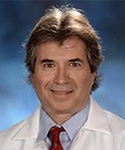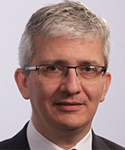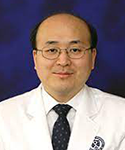Program details
-
S1 Clinical diabetes and therapeutics 1
Clinical application of multidisciplinary technology for diabetes management
Chair(s): Kun-Ho Yoon, Kyu Jeung Ahn
Friday 20 October, 09:00~10:40
Room 1 (3F)
-
Join us for an insightful session exploring the groundbreaking intersection of advanced technology and diabetes management. With four cutting-edge lectures, this session will navigate through the latest trends and future implications of multidisciplinary technology in treating diabetes and metabolic diseases.
"Artificial Intelligence for Causal Inference: Trends and Future" - Discover the ever-evolving role of AI in elucidating disease causality, ushering a new era of personalized diabetic care.
"Toward Full Closed Loop Artificial Pancreas System using AI" - Learn about the fascinating journey to develop a fully automated AI-driven artificial pancreas, revolutionizing diabetes management.
"Latest trends related to digital therapeutics in diabetes" - Stay updated with the dynamic landscape of digital therapeutics for diabetes, its potential, and its limitations.
"Application of digital twin technology to the treatment of diabetes and metabolic diseases" - Delve into the promising world of digital twin technology and its application in the healthcare sector, specifically for diabetes and metabolic diseases.
-
-
 S1-1
S1-1
Sungbin Lim
Korea University, Korea
-
Artificial intelligence for causal inference: trends and future
-
 S1-2
S1-2
Sung-Min Park
POSTECH, Korea
-
AI in diabetes: prediction and control for glucose management
-
 S1-3
S1-3
Sang Youl Rhee
Kyung Hee University, Korea
-
Latest trends related to digital therapeutics in diabetes
-
 S1-4
S1-4
Joonyub Lee
The Catholic University of Korea, Korea
-
Application of digital twin technology to the treatment of diabetes
-
S5 Clinical diabetes and therapeutics 2
Applying precision medicine for the treatment of T2DM
Chair(s): Jeong-Taek Woo, Sung Rae Kim
Friday 20 October, 16:00~17:40
Room 1 (3F)
-
Precision medicine is an emerging approach for disease prevention and treatment that takes into account people’s individual variations in genes, environment, and lifestyle. There have been many efforts to apply precision medicine in type 2 diabetes to develop stratified prevention and treatment for sub-groups of people with different risk profiles to improve outcomes. This session will provide recent knowledge and insights for the application of precision medicine in type 2 diabetes.
-
-
 S5-1
S5-1
Yongin Cho
Inha University, Korea
-
Characterization and subgrouping T2DM
-
 S5-2
S5-2
Robert Wagner
Heinrich Heine University Düsseldorf, Germany
-
Applying precision medicine for the treatment of T2DM
-
 S5-3
S5-3
Soo Heon Kwak
Seoul National University, Korea
-
Genetic risk and precision medicine
-
 S5-4
S5-4
Daehee Hwang
Seoul National University, Korea
-
Precision treatment of T2DM
-
S12 Clinical diabetes and therapeutics 3
Cardiovascular risk factor management in patients with diabetes
Chair(s): Hak Chul Jang, Yu-Bae Ahn
Saturday 21 October, 13:00~14:40
Room 1 (3F)
-
In addition to hyperglycemia se per, diabetes-related macrovascular complications are caused by many other pathophysiology including dyslipidemia, high blood pressure, and platelet hyper-reactivity. In this session, four speakers will present on the recent progress in the cardiovascular risk factor management in patients with diabetes including more intensive LDL cholesterol reduction with statin/ezetimibe combination, recent trials targeting triglycerides, use of anti-platelet agents, and blood pressure control.
-
-
 S12-1
S12-1
Jung-Sun Kim
Yonsei University, Korea
-
More intensive LDL cholesterol reduction: statin and ezetimibe combination
-
 S12-2
S12-2
Michael Miller
University of Pennsylvania, USA
-
Triglyceride – REDUCE-IT (DM subgroup), STRENGTH trial, PROMINENT trial
-
 S12-3
S12-3
Ramzi A. Ajjan
University of Leeds, UK
-
Antiplatelet agents in diabetes: where are we now?
-
 S12-4
S12-4
Sungha Park
Yonsei University, Korea
-
Recent advance in hypertension management
 S1-1
S1-1 S1-2
S1-2 S1-3
S1-3 S1-4
S1-4 S5-1
S5-1 S5-2
S5-2 S5-3
S5-3 S5-4
S5-4 S12-1
S12-1 S12-2
S12-2 S12-3
S12-3 S12-4
S12-4


